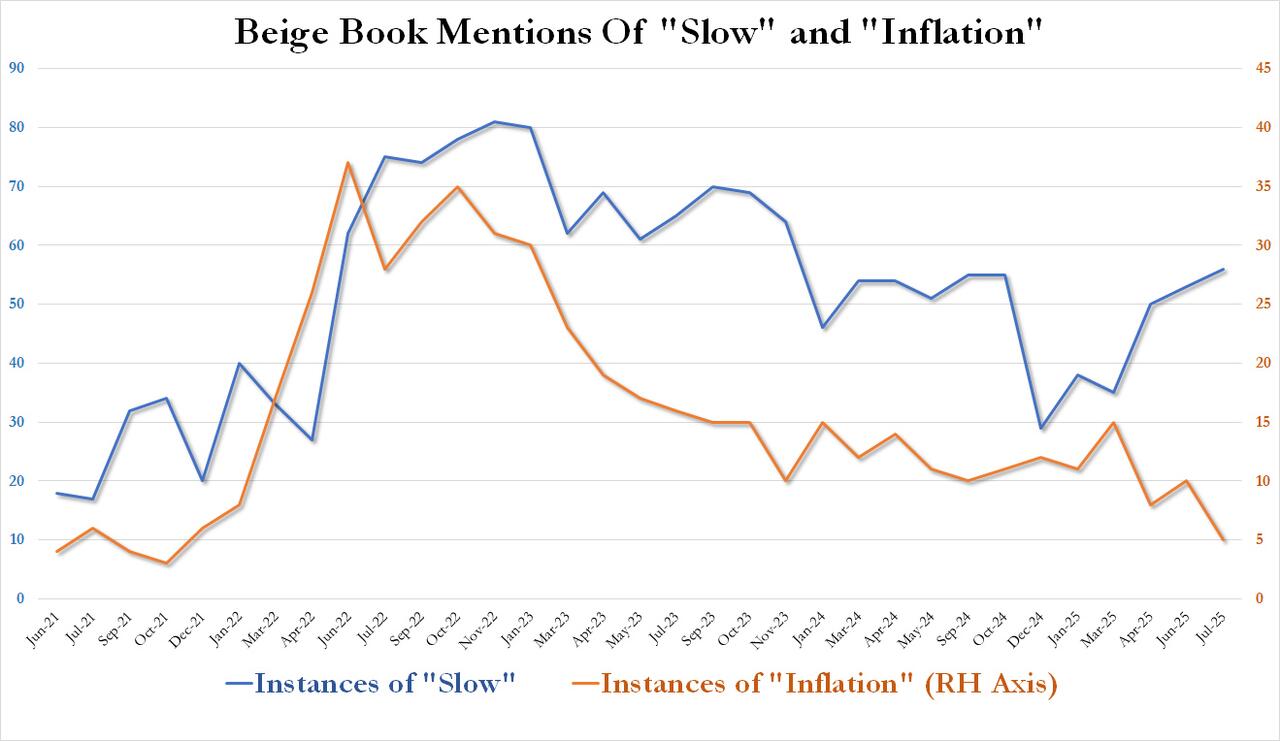Fed's Beige Book: Inflation Not as Severe, Job Market Stable, But Both Under Strain

TradingKey - On Wednesday (16th), the Federal Reserve released the Beige Book, indicating that economic activity saw some improvement from late May through early July, but the overall outlook remains neutral to pessimistic.
Inflation Less Severe, Yet Tariff Impact Remains Evident
Among the 12 Federal Reserve District Banks surveyed nationwide, seven described price increases as "modest," while five considered them "moderate." All regions reported that tariffs have exerted "mild to noticeable" pressure on costs related to manufacturing and construction materials.
This aligns with statistics from the financial blog Zerohedge, which noted that mentions of inflation in the latest Beige Book have hit a four-year low. Zerohedge believes this confirms that the current U.S. economy is not spiraling out of control, nor are prices skyrocketing.

Beige Book mentions inflation, source: Zerohedge
However, only a few businesses in all regions reported benefits from tariff policies, such as potential advantages from the reshoring of manufacturing. Conversely, many businesses indicated that prices have already risen or are about to increase, with some even experiencing a slowdown in operations.
The Beige Book notes that contacts across various industries expect cost pressures to continue rising in the coming months, which may lead to accelerated consumer price increases by late summer. The Atlanta Fed mentioned that some businesses preemptively raised prices ahead of tariff implementation, while others plan to wait for trade policy clarity before adjusting prices.
Tightened Immigration Policies Impact Labor Supply, Affecting Some Businesses
The Beige Book highlighted that overall employment saw a "slight increase," but most respondents indicated they would delay major hiring or downsizing decisions until uncertainties subside. Some regions have been affected by immigration policies, leading to a reduction in foreign labor. An increasing number of areas are reporting labor shortages, particularly for skilled trades.
According to the Beige Book, five district banks reported labor shortages, with industries such as construction, hospitality, manufacturing, and energy facing challenges in filling positions.
The New York Fed noted that some small seasonal businesses chose not to operate due to a lack of available immigrant workers. The St. Louis Fed reported that a surveyed construction company delayed project timelines due to labor shortages, while a horticulture company couldn't meet over half of its customer demand, indicating the severe labor shortfall.
Most Fed officials believe that given the overall stability of the job market and the potential for tariffs to keep pushing prices up, they are currently not inclined to cut interest rates, as it could undermine past efforts to control inflation.







